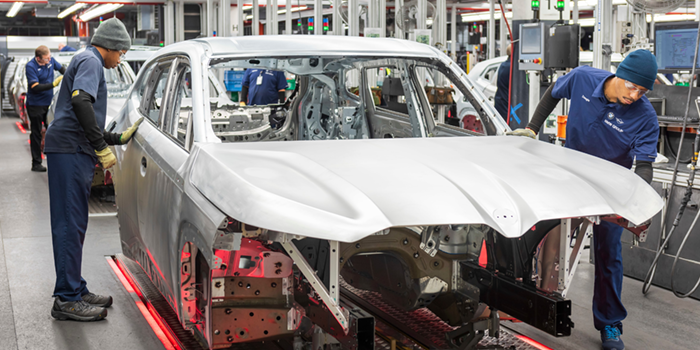'Green is the new black' in the high-end auto industry; Rio Tinto partners with BMW Group for supply of responsibly sourced aluminium
The days when premium car purchasers just considered speed, flair, and luxury are long gone. The origin, sustainability, and emissions profile of the materials used to build today's automobiles are topics of growing public concern.

"Green is the new black" has become the industry catchphrase for luxury vehicles. Premium car consumers are becoming increasingly pickier about the materials used in their cars, from the leather used for the upholstery to the metals used for the engine parts.
This fundamental transition in the automotive market has resulted in a new, innovative partnership between Rio Tinto and the BMW Group, two industry leaders, to develop more responsible, sustainable, traceable, and secure supply chains.
Rio Tinto intends to supply responsibly sourced aluminium to the BMW Group's vehicle production plant in Spartanburg, South Carolina, beginning in 2024, for use in body components.
Low-carbon primary aluminium from Rio Tinto’s hydro-powered operations in Canada, combined with recycled content, could reduce up to 70 per cent in CO2 emissions compared to the BMW Group’s benchmark for aluminium.
The two companies have signed a Memorandum of Understanding (MoU), which will see technical experts working together to embed these low-carbon solutions into the BMW Group’s supply chain while ensuring the highest vehicle quality standards are maintained. The partnership provides for using aluminium produced using ELYSIS™ on BMW production vehicles. ELYSIS™ is the world’s first carbon-free smelting technology for aluminium. It enables the production of aluminium metal without direct carbon dioxide emissions during the smelting process, instead emitting pure oxygen.
Rio Tinto and the BMW Group will also work to deploy START from Rio Tinto. START provides supply chain traceability to customers and consumers with information about provenance and ESG standards.
Alf Barrios, the Chief Commercial Officer of Rio Tinto, said: “Rio Tinto’s world-leading position in responsible aluminium production means we can offer innovative solutions to our customers on their decarbonisation journey toward net zero. As global demand for responsibly sourced materials grows, automakers are increasingly looking to partner with suppliers who share their commitment to traceability and sustainability. Rio Tinto is proud to play a role in helping to drive a greener future in the premium car industry through this partnership with the BMW Group, and we look forward to deepening our ties with the automotive industry in the years ahead.”
Joachim Post, a member of the Board of Management responsible for Purchasing and Supplier Network at BMW AG, said: “We have clear goals for lowering CO2 emissions in the supply chain. By using innovative materials, we can reduce our vehicles’ carbon footprint – even before handing them over to customers. The agreement to supply low-carbon aluminium is based on several pillars. In addition to hydroelectric power and secondary material, we want to lead the automotive industry by ramping up our use of aluminium with no direct CO2 emissions from the smelting process.”
Honourable François-Philippe Champagne, the Minister of Innovation, Science and Industry of Canada, said: “Canada is a global destination of choice for low-carbon investment. This exciting partnership between BMW and Rio Tinto proves that Canada is well-positioned to seize the economic benefits of a clean economy. I am proud that low-carbon Canadian aluminium will enter BMW’s vehicles. Canada will continue to enhance our competitive advantages—an abundance of critical minerals, skilled labour, clean energy, proximity to markets—to grow our economy and to support made-in-Canada innovation.”
This news is also available on our App 'AlCircle News' Android | iOS















.png/0/0)







